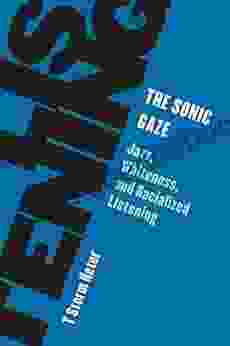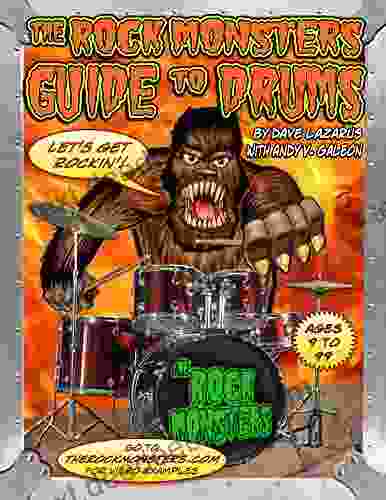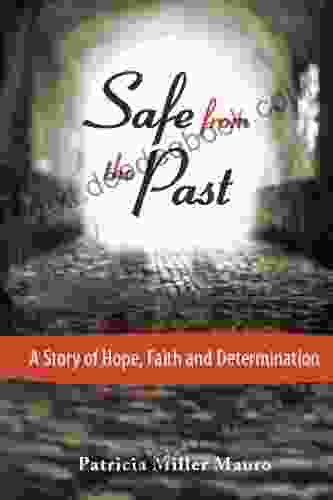The Sonic Gaze: Jazz Whiteness And Racialized Listening (Living Existentialism)

: The Crossroads of Jazz and Whiteness
Jazz, a musical genre born out of the vibrant African American communities of New Orleans in the early 20th century, has always had a complex relationship with race. While jazz has been celebrated for its innovative spirit and artistry, it has also been subject to racial stereotypes and appropriation by white musicians and audiences. This article explores the concept of "jazz whiteness" and its impact on the way jazz is listened to, understood, and experienced. Through the lens of existentialism, we will examine how the racialization of jazz has shaped the identities of both black and white jazz musicians and listeners.
Defining Jazz Whiteness
Jazz whiteness is a term used to describe the tendency of white musicians and audiences to dominate the jazz scene, both in terms of performance and reception. This dominance has its roots in the historical marginalization of black musicians and the appropriation of jazz by white artists. As jazz gained popularity in the early 20th century, white musicians began to adopt and adapt the genre, often diluting its African American origins. This process of "whitening" jazz allowed white musicians to capitalize on its popularity while erasing the contributions of black pioneers.
The concept of jazz whiteness is not merely a matter of skin color but also involves a set of cultural assumptions and expectations. White jazz musicians are often seen as embodying the "authentic" jazz sound, while black jazz musicians are often relegated to the realm of "bebop" or "avant-garde" jazz. This division perpetuates the stereotype that black jazz is somehow less legitimate or accessible than white jazz.
4.5 out of 5
| Language | : | English |
| File size | : | 2167 KB |
| Text-to-Speech | : | Enabled |
| Screen Reader | : | Supported |
| Enhanced typesetting | : | Enabled |
| Word Wise | : | Enabled |
| Print length | : | 305 pages |
Racialized Listening: The Impact of Jazz Whiteness
The racialization of jazz has had a profound impact on the way jazz is listened to and understood. White listeners often approach jazz with a sense of entitlement and ownership, while black listeners may feel a sense of alienation or invisibility. This dynamic can create a barrier to genuine musical appreciation and understanding.
For example, consider the experience of a black jazz musician performing in a predominantly white audience. The musician may feel the need to conform to white expectations in order to be accepted, which can compromise their artistic integrity. Conversely, white listeners may be drawn to jazz because it provides them with a sense of cultural authority and exoticism, rather than a genuine appreciation for the music's African American roots.
Existentialism and the Search for Authenticity
Existentialism, a philosophical movement that emerged in the mid-20th century, provides a framework for understanding the lived experiences of jazz musicians and listeners within the context of jazz whiteness. Existentialism emphasizes the importance of individual freedom, responsibility, and the search for meaning in a seemingly meaningless world.
For jazz musicians, existentialism offers a way to navigate the challenges of racial stereotyping and appropriation. By embracing their own unique identities and experiences, jazz musicians can transcend the limitations imposed by jazz whiteness and create music that is both authentic and meaningful.
For jazz listeners, existentialism encourages a critical approach to listening. By questioning our own assumptions and expectations, we can open ourselves up to a more genuine and nuanced understanding of jazz. We can recognize the contributions of both black and white jazz musicians and appreciate the genre's rich diversity without resorting to racial stereotypes.
Jazz as a Site of Resistance
In the face of jazz whiteness, jazz has also been a site of resistance and empowerment for black musicians and listeners. Black jazz musicians have used their music to challenge racial stereotypes, express their own experiences, and create a sense of community. Jazz has provided a platform for black artists to voice their political and social concerns, and it has inspired generations of activists and changemakers.
For black listeners, jazz has been a source of pride, identity, and inspiration. It has provided a sense of connection to their African American heritage and has empowered them to embrace their own unique identities. Jazz has been a way for black people to celebrate their culture and resist the forces of racism and oppression.
Transcending Jazz Whiteness: Towards a More Inclusive Future
The concept of jazz whiteness is a complex and multifaceted issue that continues to shape the way jazz is listened to, understood, and experienced. However, through the lens of existentialism, we can begin to transcend jazz whiteness and create a more inclusive and equitable future for jazz.
By embracing the diversity of jazz and recognizing the contributions of both black and white musicians, we can dismantle the racial stereotypes that have plagued the genre for too long. We can create a jazz scene where all musicians are respected and valued, and where listeners can approach jazz with an open mind and a genuine appreciation for its rich cultural significance.
: Jazz, Existentialism, and the Human Condition
Jazz, with its complex history of racialization and appropriation, offers a unique lens through which to examine the human condition. The existential philosophy that underlies jazz encourages us to confront the complexities of race, identity, and meaning-making. Through jazz, we can learn to embrace our own unique identities, challenge social norms, and strive for a more just and equitable world.
As the great jazz saxophonist Sonny Rollins once said, "Jazz is a way of life. It's about living in the moment, taking risks, and expressing yourself honestly." May we all approach jazz with the same spirit of authenticity and openness, and may jazz continue to inspire us to transcend the limitations of our own experiences and embrace the fullness of the human condition.
4.5 out of 5
| Language | : | English |
| File size | : | 2167 KB |
| Text-to-Speech | : | Enabled |
| Screen Reader | : | Supported |
| Enhanced typesetting | : | Enabled |
| Word Wise | : | Enabled |
| Print length | : | 305 pages |
Do you want to contribute by writing guest posts on this blog?
Please contact us and send us a resume of previous articles that you have written.
 Novel
Novel Page
Page Chapter
Chapter Text
Text Genre
Genre Reader
Reader Library
Library Paragraph
Paragraph Sentence
Sentence Bibliography
Bibliography Preface
Preface Synopsis
Synopsis Annotation
Annotation Manuscript
Manuscript Scroll
Scroll Codex
Codex Tome
Tome Bestseller
Bestseller Classics
Classics Narrative
Narrative Biography
Biography Reference
Reference Dictionary
Dictionary Thesaurus
Thesaurus Resolution
Resolution Catalog
Catalog Borrowing
Borrowing Stacks
Stacks Archives
Archives Periodicals
Periodicals Scholarly
Scholarly Lending
Lending Academic
Academic Reading Room
Reading Room Literacy
Literacy Study Group
Study Group Thesis
Thesis Awards
Awards Reading List
Reading List Textbooks
Textbooks Erica Jong
Erica Jong Brianna Caplan Sayres
Brianna Caplan Sayres Page Keeley
Page Keeley Mason Macrae
Mason Macrae Laura V Coulter
Laura V Coulter Julie L Reed
Julie L Reed C Mark Johnson
C Mark Johnson Kunal Mehta
Kunal Mehta Chloe S
Chloe S Edward Marston
Edward Marston Jason P Doherty
Jason P Doherty Nick Corble
Nick Corble R F Dearden
R F Dearden Sa Idu Sulaiman
Sa Idu Sulaiman Susan Kinsey
Susan Kinsey James Lucas
James Lucas Kenneth Turan
Kenneth Turan Michelle Bright
Michelle Bright Lawrence Grey
Lawrence Grey Sean Patterson
Sean Patterson
Light bulbAdvertise smarter! Our strategic ad space ensures maximum exposure. Reserve your spot today!

 Jared Powell250 Vital Things Your Cat Wants You To Know: A Comprehensive Guide to Feline...
Jared Powell250 Vital Things Your Cat Wants You To Know: A Comprehensive Guide to Feline...
 John ParkerThe extraordinary journey of Bjorn Delphine Perret: A bear that was taught to...
John ParkerThe extraordinary journey of Bjorn Delphine Perret: A bear that was taught to... Harvey BellFollow ·19.7k
Harvey BellFollow ·19.7k Dallas TurnerFollow ·8.1k
Dallas TurnerFollow ·8.1k Ibrahim BlairFollow ·3.9k
Ibrahim BlairFollow ·3.9k David MitchellFollow ·9.4k
David MitchellFollow ·9.4k Christopher WoodsFollow ·17.5k
Christopher WoodsFollow ·17.5k Johnny TurnerFollow ·2.2k
Johnny TurnerFollow ·2.2k Wayne CarterFollow ·8.9k
Wayne CarterFollow ·8.9k Oliver FosterFollow ·8.6k
Oliver FosterFollow ·8.6k

 Jack Powell
Jack PowellThe United Nations Renaissance: A New Era of Global...
The United Nations was founded in 1945 in...

 Banana Yoshimoto
Banana YoshimotoMastering the Art of Critical Analysis: A Comprehensive...
Ida B. Wells-Barnett, a...

 Brian West
Brian WestWhat You Need To Know About The Inner Lives Of Men:...
Understanding the...
4.5 out of 5
| Language | : | English |
| File size | : | 2167 KB |
| Text-to-Speech | : | Enabled |
| Screen Reader | : | Supported |
| Enhanced typesetting | : | Enabled |
| Word Wise | : | Enabled |
| Print length | : | 305 pages |














